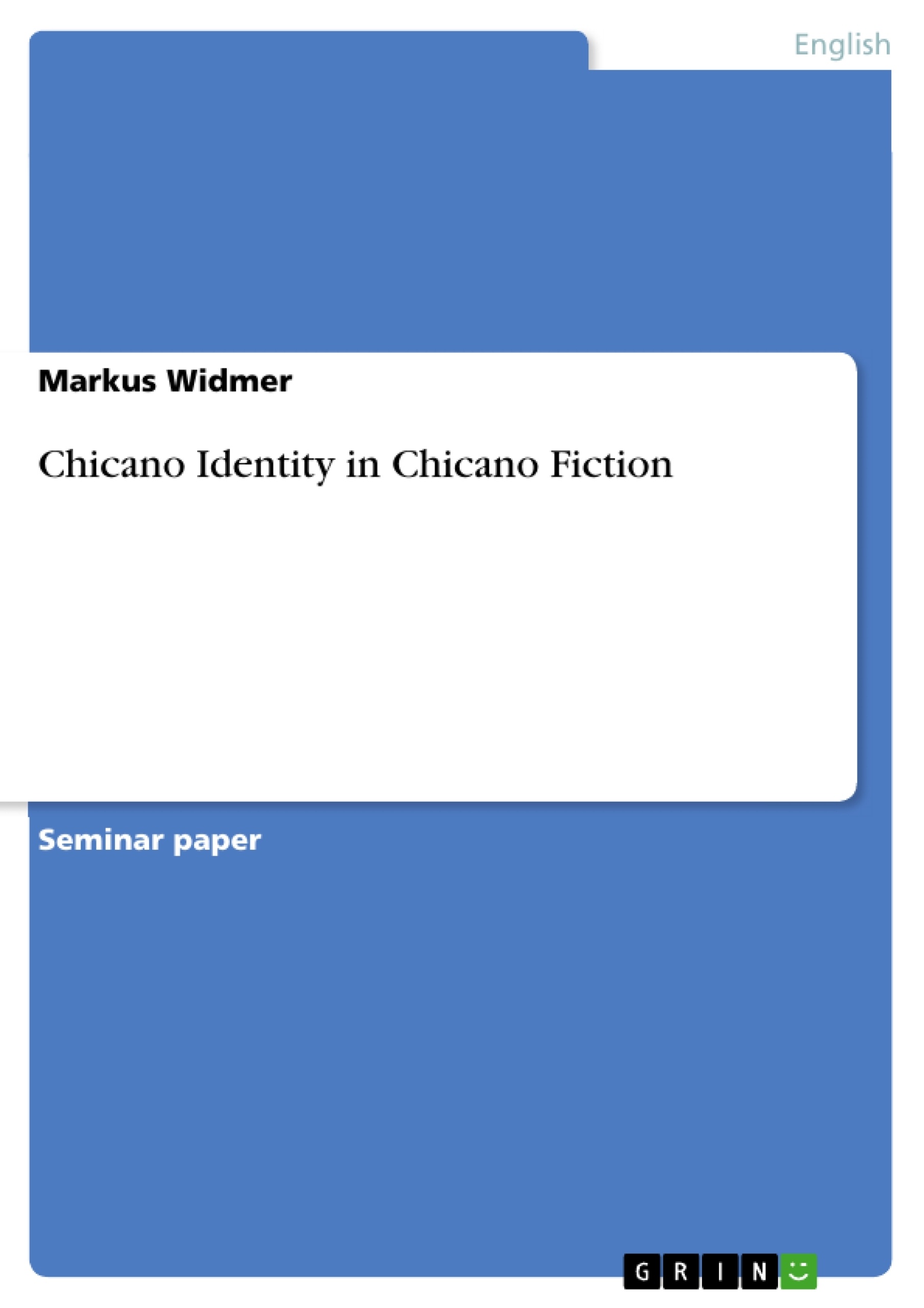In this essay, I will address the question of Chicano identity by investigating two very different texts, that both deal with a quest for identity in a Mexican-American context: Tomás Rivera’s ...And the Earth Did Not Devour Him and Richard Rodriguez’ Hunger of Memory: The Education of Richard Rodriguez. I will first discuss the contextual differences between the two works. Then I will consider the definitions of identity upon which the texts are based. Going deeper into the works themselves, I will finally discuss along which lines the two quests for identity develop. In conclusion, I will connect my investigations to the question of whether Chicano identity is unified or fragmented.
Both Tomás Rivera’s ...And the Earth Did Not Devour Him and Richard Rodriguez’ Hunger of Memory are about an individual searching for his identity. In both works, the protagonist is a Mexican-American or ‘Chicano’. However, the differences between the two books are huge. The generic difference is most obvious: Rivera’s work is a fictional narrative, which Héctor Calderón termed ‘novel-as-tales’.1 Rodriguez, referring to his book, speaks of ‘[e]ssays impersonating an autobiography’ (p. 7). This entails that the subject searching for identity is, in Rodriguez’ case, the author himself, or rather his literary image. In Rivera’s case, the subject is purely fictional, although some critics have identified this literary subject with the author.
Table of Contents
- Chicano Identity in Chicano Fiction
- Contextual Differences
- Definitions of Identity
- Quests for Identity
- Unified or Fragmented Identity?
- The Quest for Identity in ...And the Earth Did Not Devour Him
- The Lost Year
- Myth
- Language
Objectives and Key Themes
This essay aims to investigate the concept of Chicano identity by analyzing two contrasting works: Tomás Rivera's "...And the Earth Did Not Devour Him" and Richard Rodriguez' "Hunger of Memory: The Education of Richard Rodriguez." The essay examines the contextual differences between these works, explores their varying definitions of identity, and delves into the individual quests for identity presented in each text. Ultimately, the essay seeks to address the question of whether Chicano identity is unified or fragmented.
- Chicano identity in a Mexican-American context
- The role of myth, community, and language in shaping identity
- The influence of education and social mobility on identity formation
- The intersection of individual and collective experiences in the construction of identity
- The impact of political and social oppression on Chicano identity
Chapter Summaries
The essay begins by examining the contextual differences between Rivera's "...And the Earth Did Not Devour Him" and Rodriguez' "Hunger of Memory." While Rivera's work is a fictional narrative exploring the lives of Mexican-American migrant workers, Rodriguez's work is an autobiographical reflection on his personal journey of education and assimilation. The essay then explores how each text defines identity, highlighting Rivera's focus on community, myth, and language, and Rodriguez's emphasis on family, education, and class.
The essay then moves on to analyze the individual quests for identity depicted in each work. In Rivera's narrative, the protagonist's journey through a series of stories and vignettes reveals the complex interplay between collective experiences of oppression and individual acts of rebellion against societal norms and traditional beliefs. In Rodriguez's work, the protagonist's search for identity is intricately intertwined with his experiences within the educational system and his evolving sense of self in relation to his family, cultural background, and the broader society.
Keywords
Chicano identity, Mexican-American, migrant workers, education, assimilation, community, myth, language, family, class, social oppression, individual experience, collective identity, Chicano movement, political discourse, literary narrative, autobiography.
Frequently Asked Questions
What is the central theme of 'Chicano Identity in Chicano Fiction'?
The essay explores how Chicano identity is constructed and searched for in Mexican-American literature, focusing on the tension between unified and fragmented identities.
How does Tomás Rivera depict Chicano identity?
In '...And the Earth Did Not Devour Him', Rivera focuses on the collective experience of migrant workers, using myth, community stories, and the Spanish language as pillars of identity.
How does Richard Rodriguez's view differ from Rivera's?
In 'Hunger of Memory', Rodriguez presents identity as a process of education and assimilation into the American middle class, often at the cost of losing his original cultural and familial ties.
What role does language play in these quests for identity?
Language is a battleground: for Rivera, Spanish is a tool of resistance and community; for Rodriguez, the transition from Spanish to English symbolizes his public success but also his private alienation.
Is Chicano identity unified or fragmented?
The essay concludes that Chicano identity is complex and often fragmented, shaped by the intersection of political oppression, education, and the struggle to balance two cultures.
- Citation du texte
- Mag. Markus Widmer (Auteur), 1998, Chicano Identity in Chicano Fiction, Munich, GRIN Verlag, https://www.grin.com/document/14780



